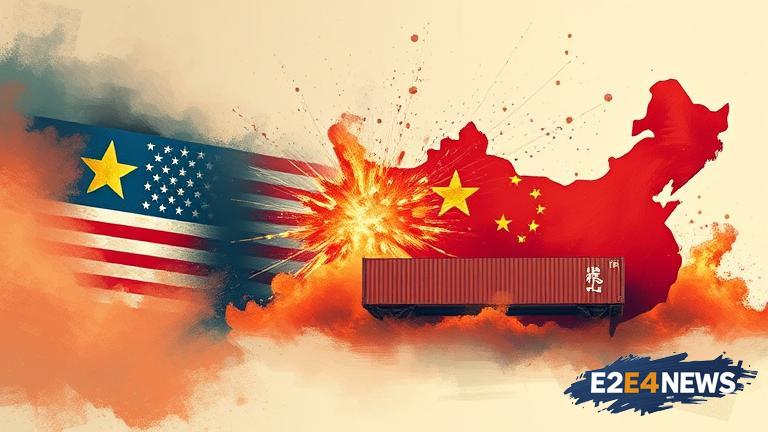The ongoing trade tensions between the US and China have taken a dramatic turn with the imposition of a 25% tariff on Chinese goods by the Trump administration. This move is expected to have far-reaching consequences for various sectors and stocks. The tariffs, which came into effect on May 10, will impact a wide range of products, including electronics, machinery, and textiles. The affected sectors are likely to experience a significant increase in costs, which may be passed on to consumers. The automotive sector is one of the most vulnerable, with companies like General Motors and Ford likely to be impacted. The technology sector is also expected to feel the heat, with companies like Apple and Intel facing increased costs. The tariffs may also have a ripple effect on the global economy, leading to higher prices and reduced demand. The Chinese government has retaliated with its own set of tariffs on US goods, further escalating the trade war. The trade tensions have already led to a decline in stock markets, with the Dow Jones and S&P 500 experiencing significant losses. The Indian stock market has also been affected, with the Sensex and Nifty experiencing volatility. The trade war has also led to a decline in the value of the Chinese yuan, making it cheaper for China to export goods. However, the tariffs may also lead to an increase in domestic production in the US, creating new job opportunities. The trade war has also sparked concerns about a global economic slowdown, with the International Monetary Fund (IMF) warning of a potential recession. The US-China trade war has also led to a decline in business confidence, with companies delaying investments and hiring. The tariffs may also lead to a shift in global supply chains, with companies looking to diversify their production bases. The trade war has also sparked concerns about the impact on the environment, with the increased costs of production leading to higher carbon emissions. The US-China trade war is a complex issue, with multiple factors at play. The tariffs are expected to have a significant impact on the global economy, with far-reaching consequences for businesses and consumers. The trade war has also led to a decline in diplomatic relations between the US and China, with tensions running high. The situation is being closely monitored by governments and businesses around the world, with many calling for a resolution to the trade tensions. The US-China trade war is a major concern for the global economy, with the potential to lead to a recession. The tariffs are expected to have a significant impact on multiple sectors, including automotive, technology, and textiles. The trade war has also led to a decline in stock markets, with the Dow Jones and S&P 500 experiencing significant losses. The Indian stock market has also been affected, with the Sensex and Nifty experiencing volatility. The trade war has also sparked concerns about a global economic slowdown, with the IMF warning of a potential recession. The US-China trade war is a complex issue, with multiple factors at play. The tariffs are expected to have a significant impact on the global economy, with far-reaching consequences for businesses and consumers.
